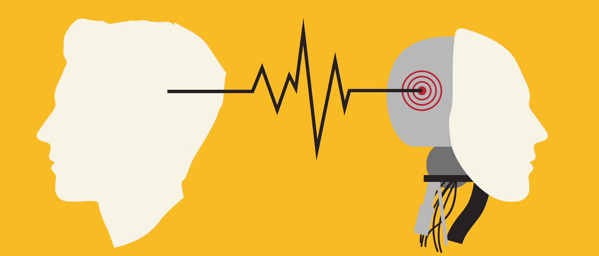Professor Sir Muir Gray kicked off our series of guest blogs exploring the mental health and physical health divide on World Mental Health Day. In this second blog, Dr Hilary Grant the Medical Director for Birmingham and Solihull Mental Health Foundation Trust reflects on her career and the improvements required to bridge the divide for the benefit of service users and clinicians.
‘Humans and system: challenging the false dichotomy between mental and physical health’
My 25-year career in mental health, has potently revealed to me the dichotomous approaches, interventions and perceptions with regard to physical and mental health. As a house officer in the early 90s, I treated patients with acute and chronic physical health problems and comorbid mental disorders and observed that lack of holistic clinical knowledge and training as well as stigma and fear, negatively impacted on patients’ treatment and prognosis.
A particular young adult with a learning disability comes to mind, an example of where the inability to adequately address the mother’s mental health illness, impacted on the ability of the wider family to cope and care, resulting in the boy being a frequent attender to the inpatient respiratory unit. Spending some time with the mother at the bedside and being interested in understanding how the family managed day to day at home revealed the considerable mental health needs of mother herself and also the broader challenges for the family system. Introduction of psychologically informed home visits to the family, marked a sea change in the family’s resilience and precipitated a significant improvement in this young man’s recovery.
Another noteworthy example is of a 4-year old boy who, under the care of concerned and informed paediatricians, had received months of intrusive investigations for failure to thrive. It took an opportune discussion between a trainee psychiatrist and a paediatrician, that identified that the boy’s caring and compassionate mother had intermittent psychotic episodes, marked by periods during which she would not eat due to fear of being poisoned. The mother’s love and fear for her son’s safety, led to her protecting him from what she saw as potentially dangerous food, resulting in him also harbouring fears of being poisoned. The continued paediatric-psychiatric interactions and the subsequent combined interventions led to recovery for both mother and child and a huge learning for the trainees.
Later in my career, as a forensic adolescent psychiatrist, investigating the poor early life experiences of young people, I regularly identified physical health co-morbidities and soft neurological signs (indicative of neurodevelopmental immaturity due to environmental/social emotional causes). We now have mounting evidence that adverse childhood experiences interfere with epigenetic processes, to the detriment of both physical and mental health.
Mental ill health precipitates, perpetuates, maintains and exacerbates acute and chronic physical health problems.
The challenge for current mental health services is to effectively identify and meet the physical health needs of our patients, so as to alter their current morbidity and mortality rates. To meet that challenge there are number of things we can do as individual clinicians:
Refrain from affirming the false dichotomies – for example in A and E we can train clinical colleagues to overcome the fear, stigma and lack of expertise which manifests as relief when the mental health clinician arrives, alongside comments of “he’s one of yours”.
Be curious, inquisitive and confident to see the patient’s mental health needs beyond the medical/disease process in acute health settings.
Be mindful of each other’s health; we need care and compassion too. A psychiatrist colleague, exposed to years of vicarious emotional trauma through his work, experienced an acute transient ischaemic attack during a particularly challenging psychotherapy session. An oncologist distressed by years of breaking bad news and building relationships with patients while recognising their poor prognosis, shared his distress with his psychiatrist patient while discussing their prognosis. That patient was me!
Of course, it helps to be supported by the wider healthcare system to address the current mental and physical health divide. The most pressing of these considerations to my mind are:
- The development of new integrated models of physical and mental health service provision.
- The training of undergraduate and postgraduate clinicians to deliver these integrated models facilitated by knowledge of systems theory (where the system of interest is interrelated and inter-dependent: physical, biological, psychological, social and cultural, and examines the world in terms of relationships and integration) to raise awareness of the combined effect on physical and mental health.
- The adoption of comprehensive approaches to meet mental and physical health care needs, not just for our service users but also for our clinicians.


